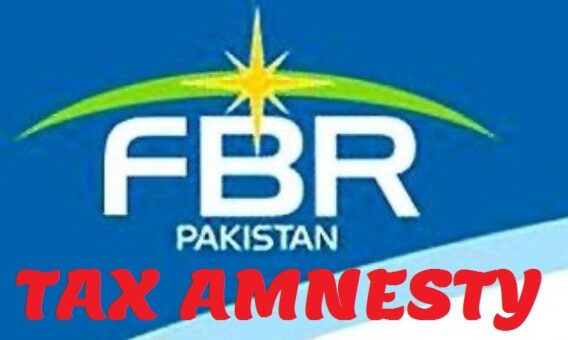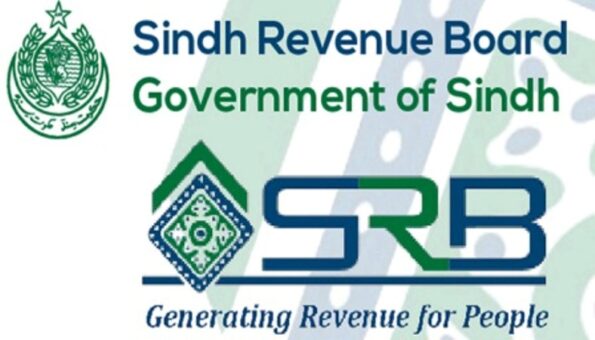ISLAMABAD: Persons having offshore undeclared assets in Panama and Paradise leaks can avail the latest Asset Declaration Scheme 2019, according to a presentation made by Federal Board of Revenue (FBR).
According to the presentation made available to PkRevenue.com, Panama and Paradise leaks/offshore property holders can also avail the latest asset declaration scheme 2019, which is going to expire on June 30, 2019.
The purpose of the amnesty scheme has been explained as to:
Allow the non documented economy’s inclusion in the taxation system;
Trigger economic revival and growth by encouraging a tax compliance in the economy;
Generate much needed revenue for the exchequer;
Ease out Pakistanis living in and outside with undisclosed assets in an era of international transparency.
The eligibility to avail the amnesty scheme has been explained that it can be availed by anyone except:
A public office holder for the last 10 years; spouse, and dependents;
Public company;
Proceeds of crime;
Gold and precious stones;
Bearer Prize Bonds, shares and other bearer assets;
The eligible assets and transactions for the schemes are:
Any undisclosed assets, undisclosed sales and undisclosed expenditure, held or acquired up to June 30, 2018 by the person, anywhere;
Benami assets acquired or held on or before the date of declaration;
Tax imposed by the FBR without default surcharge and penalty unless it has attained finality.
The presentation explained benami property and transactions as:
Benami Property: Any property which is the subject of benami transaction and includes the proceeds from such property.
Benami transaction: Property held in the name of one person whereas consideration paid by another person except in the case of trustee, partner, director, agent, spouse, child, sibling or descendent;
Property held in a fictitious name, owner denies ownership or is unaware;
Person providing consideration is not traceable – fictitious.
It explains benamidar and beneficial owner as:
Benamidar: A person or a fictitious person, as the case may be, in whose name the benami property is transferred or held and includes a person who lends his name.
Beneficial owner: A person, whether his identity is known or not, for whose benefit the benami property is held by a benamidar.
According to the presentation the procedure of filing declaration is:
Declaration shall be made on the form specified on the web portal, including
Non-filer availing the scheme shall file regular return and wealth statement for tax year 2018
Filer shall revise the return and wealth statement as per declaration (financial statements in cases of companies)
Undisclosed sales to be declared in the first sales tax and federal excise returns due after the declaration.
Return can be revised but value of the assets cannot be decreased.
No tax shall be subsequently payable under Income Tax Ordinance, Sales Tax Act, and Federal Excise Act if tax is paid under the Ordinance.
The conditions of declaration are:
Cash to be deposited into a bank account and retained in the same till June 30, 2019;
Foreign currency held in Pakistan to be deposited into own foreign currency account and retained therein till June 30, 2019;
Liquid foreign assets repatriated to be deposited in declarant’s bank account or invested into Pakistan Banao Certificates or foreign currency denominated bonds issued by the federal government;
Liquid foreign assets if not repatriated, to be deposited and retained in a foreign bank account till June 30, 2018;
Mode of repatriation of foreign assets and payment of tax notified by SBP dated May 25, 2019;
Assets to be declared in foreign currency;
For payment after June 30, 2019, tax and default surcharge at then prevailing exchange rate;
Entitlement to incorporate undisclosed assets in return, wealth statement after availing amnesty.
The presentation explains valuation of immovable property under declaration scheme as:
Domestic immovable properties:
150 percent of FBR value where notified
150 percent of the DC rate where FBR value is not notified
150 percent of FBR value notified for land and 150 percent of DC value for constructed property where FBR rates are not notified.
Other assets:
Fair market value but not less than the purchase value;
Foreign assets to be valued at exchange rate prevalent on the date of declaration.
The applicable tax rates for the asset declaration scheme 2019 are:
01. All assets except domestic immovable properties : 4 percent
02. Domestic immovable properties: 1.5 percent
03. Foreign liquid assets not repatriated: 6 percent
04. Unexplained expenditure: 4 percent
05. Undisclosed sales: 2 percent
The rate of default surcharge shall be:
01. Tax paid after June 30, 2019 and on or before September 30, 2019: 10 percent of the tax amount
02. Tax paid after September 30, 2019 and on or before December 31, 2019: 20 percent of the tax amount
03. Tax paid after December 31, 2019 and on or before March 31, 2020: 30 percent of the tax amount
04. Tax paid after March 31, 2020 and on or before June 30, 2020: 40 percent of the tax amount.
The FBR said that tax paid would not be refundable.
The declarations would not be admissible for any proceedings relating to imposition of penalty, adverse action, prosecution under any law.
Declaration containing misrepresentation and suppression of fact would be void.
Declaration to be kept confidential. Those who have availed previous amnesty schemes can also avail the present scheme.






